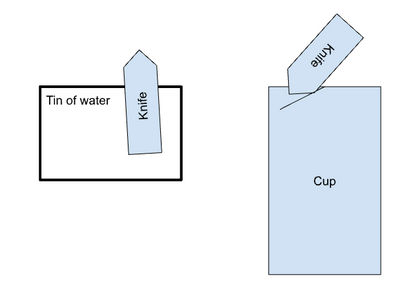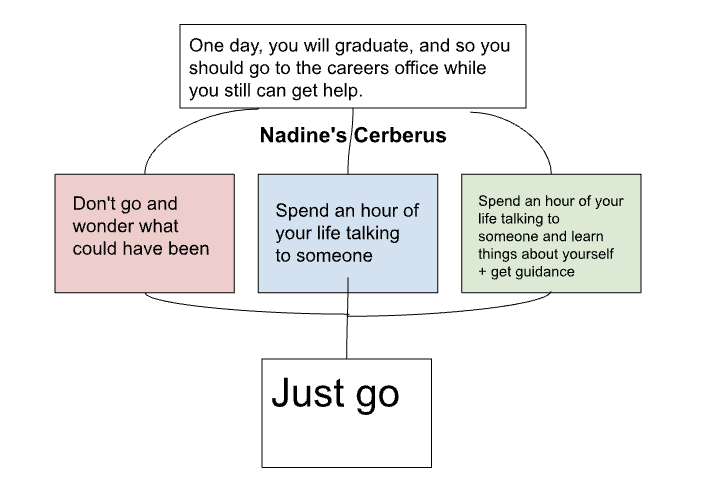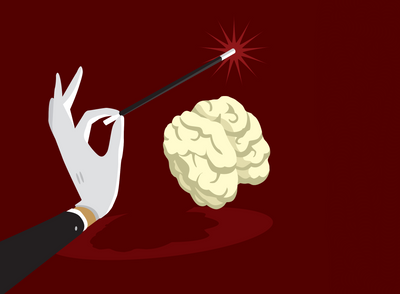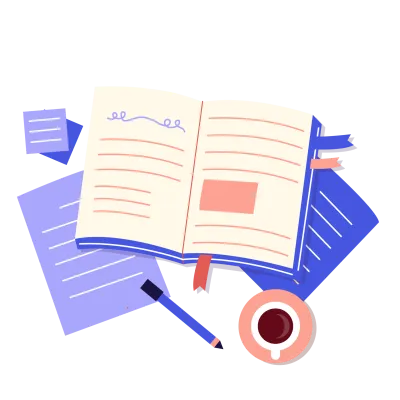I like writing by hand. I hate using a computer. I think that the worst thing about using a computer is that it is convenient. And because it is convenient, it becomes easy to lose yourself in its convenience. Using a computer in the lecture hall is subject to the same sort of problem. In the lecture, those with computers are struggling to write everything down as quickly as possible. I sit in a lecture hall full of these people and I am not one of them. I have a yellow pad in front of me and two pens, one blue, one black. I use the black to write down what the lecturer said and I use the blue to write my own thoughts about what he/she just said. I use both at the same time.
I don’t struggle to capture everything the lecturer is trying to say because I know that I can’t. It is an exercise in futility. This, I believe, is a liberating experience. I have never felt more free than when I dumped my computer. Instead, I try my best to write what I think are the most important points. I’ve become a better listener. I can now listen attentively for long periods of time. I can also listen with focus during the same period. Many think that attention and focus are the same thing, but they are not. Attention means according something a certain level of consideration and being receptive to it. You can pay attention to many things at the same time and colloquially, we know this phenomenon as multi-tasking. Focus on the other hand, is singular. It is also more than just being highly receptive to something. Focus is an active action, not a passive one. Note taking is an active one when I have to decide what goes on the yellow pad in front of me. As such, note-taking helps me focus.
Note taking also helps me guard against complacency. The temptation for fast typists is that if you captured everything that the lecturer said, you probably don’t have to pay it any thought. You can always return to it later and accord it the appropriate amount of thought. It helps you postpone diligence. I think that that is very unhealthy. In fact, it is not the stupid ones who are most susceptible to that; it is the smarter ones who are. This is because the smarter ones know (or at least think) that they can afford to put it off. Hidden in that thought, is the assumption that they can catch up in time (and still win). Every successful catch up vindicates this mindset and every failure is excused by the oft-heard remark ‘I didn’t study very much but I still did well enough. That must point to something very flattering about my intelligence’. For a person like me who is keenly aware of his potential arrogance, note taking is a humbling exercise. Taking notes helps me conquer hubris.
Good notes, in my opinion, don’t use bullets excessively. If you wanted bullets, you should have used a computer. Computers, like guns, can dispense bullets far more cleanly and with less effort. The computer’s bullets however are not deadly. A free page for me to divide in half or draw arrows to connect ideas is the deadliest tool for my purposes. This is because the world is not ordered into points and sub-points and sub-clauses. If I want to do justice to the fascinating subject I’m learning, I should strive to understand it in its original density. Point form thins the subject. Anyone who’s attempted to understand love through a Thought Catalogue list-icle can testify to this.
I love notes and taking notes. While I don’t have statistics or studies to back my personal thoughts (though I imagine there are quite a few), this does not stop me from trumpeting the clarion attraction of a yellow pad and 2 coloured pens. I admit that I do this for dishonourable reasons. I am not the most brilliant person. Everyday I’m confronted by people of electric intelligence. But taking notes helps me slow things down such that for a moment, a fleeting moment, I can claim to be every bit as incredible as they are. Notes make me the best person I can be.
Written by: Bumsoo (Year 1)






